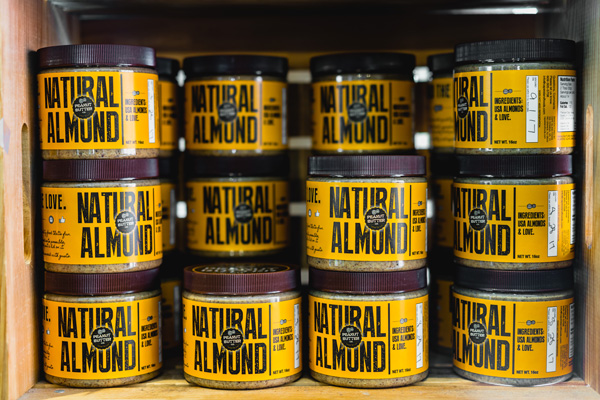If you previously traded at markets and events where customers bought products from you directly, you may be thinking of new ways to get your product out to consumers. The restrictions on face to face customer sales mean some businesses are wanting to package and label their products so they can be sold through shops, gift basket companies, on the internet and facebook groups etc.
Wholesaling can be a great way of expanding, getting more consistent income, and overcoming the problems of cancelled events and restricted markets. Providing your products to other retailers to sell is called wholesaling, regardless of the quantity you provide.
Of course there are many other things to do like logo design, website and marketing, but you need to ensure the food safety issues are sorted first.
These are the top 5 food safety things to do before you start wholesaling:
- Labelling
If you sell through another shop or business you’ll need to fully label your products, as you are not there to give the customer any information. A label needs to contain key information like the name and physical address of who made it, the name of the food and the weight. There needs to be a full list of ingredients in weight order, and allergens declared. You’ll need a Nutritional Information Panel with the values of energy, carbohydrate, fats and protein. You might be able to use the online tool NIP to help calculate this if you have a recipe with weights of each ingredient. Other required information includes a best before or use by date depending on what the product is. This is not an exhaustive list and there is a really useful guide to labelling by MPI on their website and in my free download. And of course it needs to stand out on the shelf!
- Packaging
Your packaging needs to not only look good but be safe for use with food. So be careful what you buy from the internet! You’ll need an assurance from the supplier that’s its safe for use with foods and be able to show that to your verifier. Add your new packaging supplier to your list of suppliers. There are lots of new environmentally friendly packaging options that are recyclable or compostable.
- Traceability
You’ll need to keep a record of what you have made and give it a batch number, which is often related to the date you made it. You’ll also need to record the names and contact details of any business you supply to, along with what you supplied, the amount and the date you supplied them. This means that if you ever had to recall a whole batch of product that you made on the same day, for example if you find out later that someone was sick when they made it, then you can trace where it all went. If you record all the batch/lot details of the ingredients that went into each product then it can help you minimise what you would need to recall if a supplier tells you they had a problem with an ingredient.
- Recall procedure
Following on from traceability, the worst case scenario is that you have to recall some of your food. This could be because there is a problem with your labels like missing allergens, or the wrong product is in the wrong package, or a supplier tells you there was a problem with an ingredient you have used in your food. You need to have a plan for if this happens. You’ll need to keep records of any recalls. There is more detail in the Food Control Plan or National Programme pages called ‘Recalling your food’.
- Update your scope
Your registration may currently say that you only retail and trade from markets. If you want to start wholesaling you should notify your Council or MPI (whoever you are registered with). Ask them to add wholesaling to your scope along with any other trading operations you want to do like internet trading. You can check your own listing on the public register to see what you are currently registered for: http://mpiportal.force.com/publicregister/PublicRegisterSiteDetails
There are pages in the Food Control Plan and National Programme Guidance with more information about each of these topics.
If you would like a free info pack click below:

